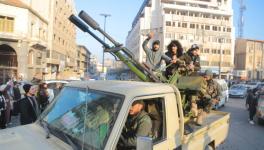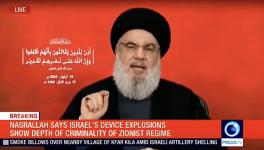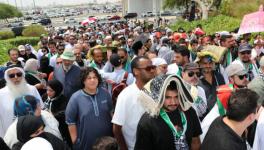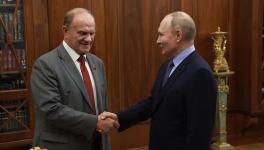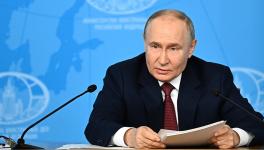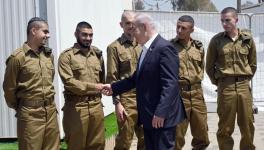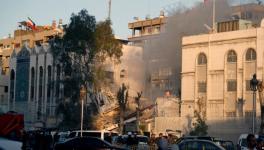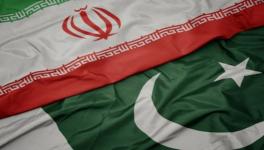Irrational and Dangerous US Administration – Says the Iranian Foreign Minister
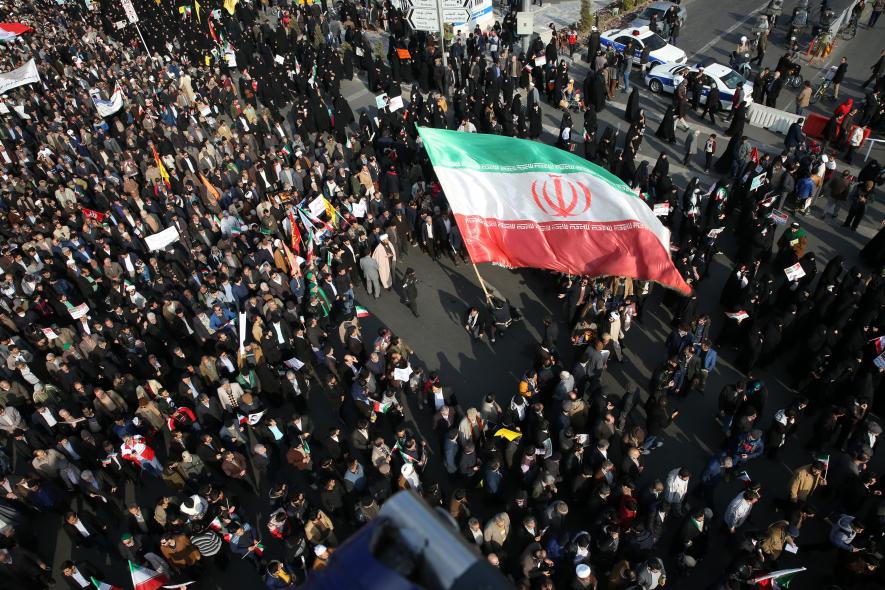
Image Courtesy : Time
Iran, a proud country of 81 million people, feels the sense of being beleaguered.
Iranians and their History.
Iranians know their contemporary history. A democratic government was overthrown with the help of the CIA in 1953. It inaugurated the rule of a brutal warlord – the Shah. During the period of the Shah’s rule, all sections of Iranian society felt the urge to overthrow it and bring into being a more just social order. The Iranian revolution of 1979 brought together this urgency.
But this revolution – however limited by its capture by the clerics – quickly found itself surrounded by hostile powers. The Gulf Arabs and the West egged on Saddam Hussein’s Iraq to attack Iran, which then endured an eight-year war. Hundreds of thousands of people died in that senseless war, one which provoked equal measures of nationalism and of despair (anti-war protests took place across the country in 1985).
A brief respite from 1988 was met shortly afterwards by pressure from the Gulf Arabs, the West and the Israelis to overthrow the Iranian government on the basis of allegations about the production of nuclear weapons. Sanctions and embargos followed.
Millions of Iranians know this history. They are eager to tell you about it. They are eager for you to know that they have been under threat even when they have not threatened anyone.
This week, Iran’s foreign minister Javad Zarif wrote an article called ‘US Foreign Policy in Crisis’. Apart from the Iranian press, no one has paid attention to Zarif’s article. But it is worth some consideration because it reflects the kind of sensibility that envelops Iranians of all political persuasions (apart from a small shard of monarchists who believe they can ride back to the Peacock Throne on an American missile). The article opens with a section on the long contemporary history of aggression towards Iran. It always begins with what Zarif calls the ‘US-orchestrated coup of 1953’ – a moment that unites Iranians in dismay. If Iran’s democratic government had been allowed to proceed with its nationalist agenda, they say, what a different story could have been written for their country!
Zarif has to gesture to that history. But he is more interested in the present.
Agreements Must Be Kept.
Iran went into the negotiations over its nuclear programme with seriousness. The nuclear deal that resulted in 2015 was based on, as Zarif notes, ‘hundreds of hours of arduous bilateral and multilateral negotiations, in which the highest ranking US foreign affairs official participated, and which was submitted to the UN Security Council by the US and adopted unanimously as an international commitment under Article 25 of the UN Charter’.
What Zarif is saying here is that Iran took the time to work with the West and the United Nations to build an agreement – that there were negotiations and that there was agreement. This is crucial. He demands, based on an old principle, that the international community honour its agreements. The old Latin term he uses – pacta sunt servanda – means ‘agreements must be kept’.
It is not Iran, Zarif says, that is breaking the agreement. It is the United States. The International Atomic Energy Agency says that Iran has kept its side of the bargain. There are no violations of the agreement. So, on what basis is the US breaking the deal? Zarif has hard words here. This is ‘an irrational and dangerous US administration’, he writes. It is worse than any that has come before. Its view of Iran is governed by the Saudis and the Israelis rather than by any interaction with the Iranians.
Zarif quotes the current US Secretary of State Mike Pompeo twice. When Pompeo was the head of the CIA, he told a Congressional committee – ‘Iran has not violated its commitments’. Now, as Secretary of State, Pompeo says, ‘Iran has violated its commitments’. Which is it to be? How is one to know what is real and what is not real? Can international relations be formed on such quicksand?
Regionalism.
The skyline in Tehran is littered with Chinese cranes. A Chinese freight train now runs into Tehran – a part of the One Belt One Road Initiative. India’s refusal to honour new US sanctions and to continue to trade with Iran gladdens officials in Tehran. They also see cracks inside Europe, which had been willing earlier to sit on the same side of the table as the United States. But no longer is that coalition so stable. Europe needs Iranian energy. It also does not want to see the multilateral agreement set aside. Nor does China. Nor does India.
Nor really do most countries in the world. ‘The era of regional and global hegemony has long passed’, writes Zarif. No more can the United States, he suggests, run roughshod over states to push its policy objectives. It will meet resistance from more countries than it imagines.
The antidote to imperialism, as the Latin Americans had argued about fifteen years ago through their concept of Bolivarianism, is regionalism. ‘Instead of yielding to foreign domination’, Zarif writes, ‘or trying to dominate others, countries in our region should seek to create a stronger, more prosperous and more stable region’.
To push for regionalism, Zarif recommends two institutional platforms.
First, that West Asia be constituted as a Zone of Peace. In 1974, Iran and Egypt proposed to the United Nations that the Middle East be formed as a Nuclear Weapon Free Zone. In other words, no country can house nuclear weapons in the region – not the countries of the region, nor other countries in bases that are in the region. This proposal was junked. The Iranians are eager to revive it. What this means is not merely that Iran is willing to put sign another agreement that would constrain nuclear weapons in the region.
According to a new report from SIPRI, the only country in the region that has nuclear weapons is Israel. It has about eighty nuclear warheads at the ready. If West Asia would become a Zone of Peace and if Israel were to de-nuclearize, Zarif writes, it would neutralize the ‘gravest real threat to regional and international peace and security’. The word ‘real’ here is important. Iran is seen as the threat. But that is not real, suggests Zarif.
Second, that a Regional Dialogue Forum be established that would bring together the main powers in West Asia to have a rational discussion about threats and opportunities. The model here is the Shanghai Cooperation Organisation, in which Iran is an observer nation. The point of such regional forums is to create a place where adversaries can engage each other and build confidence towards a Grand Bargain. The two main adversaries in the region are Saudi Arabia and Iran. Any Forum that brings them together with the express purpose of a Bargain is to be welcomed.
Zarif indicates that conflict is expensive and it takes away from the people’s needs. The US government, he says, ‘should stop selling hundreds of billions of lethal military equipment every year to regions in crisis’. This money, he argues, should go towards the welfare of society. ‘Only a fraction of the money paid by US arms customers’, he writes, ‘could alleviate hunger and abject poverty, provide for potable, clean water, and combat diseases throughout the globe’. Who can argue with that?
Get the latest reports & analysis with people's perspective on Protests, movements & deep analytical videos, discussions of the current affairs in your Telegram app. Subscribe to NewsClick's Telegram channel & get Real-Time updates on stories, as they get published on our website.









